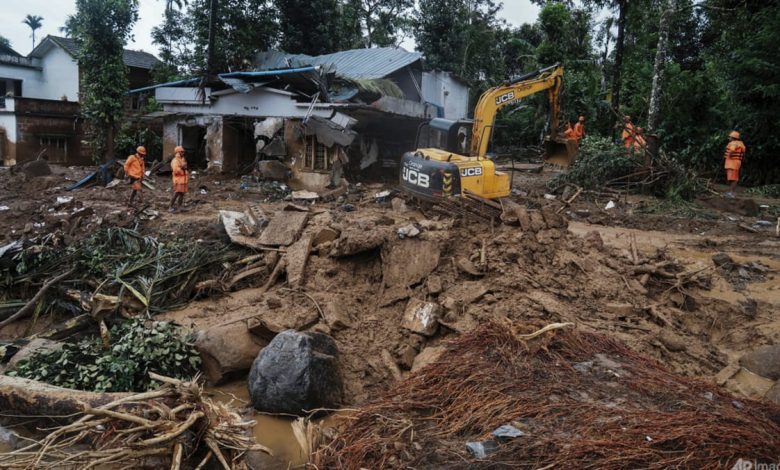How missed warnings, ‘over-tourism’ aggravated deadly India landslides

“GOD’S OWN COUNTRY”
Kerala, a sliver of land between the Western Ghat mountains to the east and the Arabian Sea to the west, is one of the most scenic states in India, and is advertised as “God’s Own Country”.
But it has witnessed nearly 60 per cent of the 3,782 landslides in India between 2015 and 2022, the federal government told parliament in July 2022.
Studying the ecological sensitivity of the Western Ghats, a federal government-appointed committee said in 2011: “It has been torn asunder by the greed of the elite and gnawed at by the poor, striving to eke out a subsistence. This is a great tragedy, for this hill range is the backbone of the ecology and economy of south India.”
The committee, headed by ecologist Madhav Gadgil, recommended barring mining, no new rail lines or major roads or highways in such areas, and restrictions on development in protected areas that it mapped out. For tourism, it said only minimal impact tourism should be promoted with strict waste management, traffic and water use regulations.
State governments, including Kerala, did not accept the report, and a new committee was set up, which in 2013 reduced the overall protected area from 60 per cent of the mountain range to 37 per cent.
But all the states along the mountain range wanted to reduce the protected area even further, minutes of successive meetings until 2019 show. The federal government issued drafts to implement the recommendations for all stakeholders, but is yet to issue a final order.
Gadgil told Reuters his committee had “specifically recommended that in ecologically highly sensitive areas there should be no further human interventions, such as reconstruction”.
“The government, of course, decided to ignore our report,” he said, because tourism is a cash cow.
Kerala Chief Minister Vijayan dismissed questions about the Gadgil recommendations, telling reporters his focus was on relief and rehabilitation and asking people to not “raise inappropriate propaganda in the face of this tragedy”.
While experts bemoan tourism-led development, locals like Mundakkai’s Padikkalparamban said it brought jobs to an area that did not have many options earlier.
“After the plantation estates, resorts are the second biggest job-generating sector in the area now,” he said.
But KR Vancheeswaran, president of the Wayanad Tourism Organisation that has some 60 resorts and homestays as members but none in the vicinity of the landslides, said the industry needed to take some of the blame.
“If human activities are going to be unbearable to nature, nature will unleash its power and we will not be able to withstand it,” Vancheeswaran said. “We have had to pay a very, very high price, so let us try to learn from it.”





